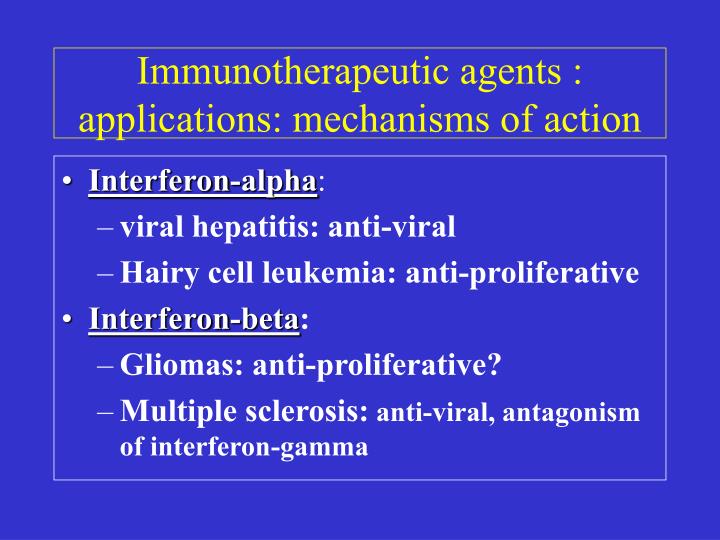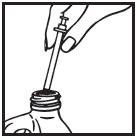
How can Actimmune ® help you?
ACTIMMUNE ® (Interferon gamma-1b) helps lower the risk of serious infection* in people with chronic granulomatous disease (CGD). See how ACTIMMUNE ® may help you or your loved one.
How do I contact Actimmune® support team?
Reach out to us Monday – Friday from 8 AM to 8 PM ET at 1-833-346-9243. At ACTIMMUNE.com, you can learn more about the signs and symptoms of chronic granulomatous disease (CGD). You can find information on how ACTIMMUNE ® helps protect against serious infections and hear from patients and caregivers about living with CGD and taking ACTIMMUNE ®.
How much does Actimmune cost?
Actimmune Prices. This Actimmune price guide is based on using the Drugs.com discount card which is accepted at most U.S. pharmacies. The cost for Actimmune subcutaneous solution (2000000 intl units/0.5 mL) is around $57,310 for a supply of 6 milliliters, depending on the pharmacy you visit.
What are the side effects of Actimmune?
The most common side effects with ACTIMMUNE are "flu-like" symptoms such as fever, headache, chills, muscle pain, or fatigue, which may decrease in severity as treatment continues. Bedtime administration of ACTIMMUNE may help reduce some of these symptoms. Acetaminophen may be helpful in preventing fever and headache.

How much does interferon gamma cost?
Interferon gamma, used in chronic granulomatous disease, costs about $140 for a 100-microg vial; yearly costs average $21840 per patient.
Who makes actimmune?
Visit www.ACTIMMUNE.com to download a copy of the ACTIMMUNE Full Prescribing Information. Horizon Pharma plc is a biopharmaceutical company focused on improving patients' lives by identifying, developing, acquiring and commercializing differentiated and accessible medicines that address unmet medical needs.
What is interferon gamma used for?
Interferon gamma-1b injection is used to lower the frequency and severity of serious infections caused by chronic granulomatous disease (CGD). It is also used to slow down the progression of severe, malignant osteopetrosis (SMO).
How is interferon gamma administered?
ACTIMMUNE® (Interferon gamma-1b) should be administered subcutaneously 3 times weekly. It can be injected by the patient or caregiver after appropriate training by a healthcare professional.
What is chronic granulomatous?
Chronic granulomatous disease (CGD) is a genetic disorder in which white blood cells called phagocytes are unable to kill certain types of bacteria and fungi. People with CGD are highly susceptible to frequent and sometimes life-threatening bacterial and fungal infections.
What is a granulomatous?
Overview. Chronic granulomatous (gran-u-LOM-uh-tus) disease (CGD) is an inherited disorder that occurs when a type of white blood cell (phagocyte) that usually helps your body fight infections doesn't work properly. As a result, the phagocytes can't protect your body from bacterial and fungal infections.
How long can you take interferon for?
Interferon treatment for hepatitis C would typically last 24–48 weeks (6–12 months). Interferons caused many long-term side effects partly because of this long treatment time.
Is interferon gamma FDA approved?
ACTIMMUNE® (Interferon gamma-1b) is approved by the FDA to delay time to disease progression in patients with severe malignant osteopetrosis (SMO). ACTIMMUNE® is believed to work by changing how some cells in your body work. This includes the cells that help form your bones.
What is the role of an interferon?
Interferons were first described as an antiviral factor that interferes with viral replication in mammalian cells (10). They are secreted from infected cells and activate innate immune response that promotes not only cytokine production but also natural killer cell functions and antigen presentation (11, 12).
What increases interferon-gamma?
High Interferon-Gamma LPS can be elevated by bacterial infections, a “leaky gut”, or other health conditions. Nitric oxide also increases interferon-gamma levels [4].
What triggers interferon-gamma release?
IFN‐γ is primarily secreted by activated T cells and natural killer (NK) cells, and can promote macrophage activation, mediate antiviral and antibacterial immunity, enhance antigen presentation, orchestrate activation of the innate immune system, coordinate lymphocyte–endothelium interaction, regulate Th1/Th2 balance, ...
Is IFN-gamma inflammatory?
Abstract. IFN-gamma has long been recognized as a signature proinflammatory cytokine that plays a central role in inflammation and autoimmune disease. There is now emerging evidence indicating that IFN-gamma possesses unexpected properties as a master regulator of immune responses and inflammation.
What does high interferon gamma mean?
Elevated IFN-gamma levels are commonly associated with: Kidney damage in type 2 diabetic patients, as seen in a study on 100 diabetics [21] Increased severity of heart disease, as seen in a study on 104 people with coronary heart disease and type 2 diabetes [22]
What are the side effects of interferon?
Injection site reactions (pain/swelling/redness), headache, tiredness, diarrhea, upset stomach, loss of appetite, back pain, dizziness, dry mouth, taste changes, nausea, or vomiting may occur. If any of these effects last or get worse, tell your doctor or pharmacist promptly.
What is human interferon gamma?
Human interferon gamma is a cytokine belonging to a diverse group of interferons which have a crucial immunological function against mycobacteria and a wide variety of viral infections.
What type of interferon is interferon gamma?
type II interferonIFN-γ, or type II interferon, is a cytokine that is critical for innate and adaptive immunity against viral, some bacterial and protozoan infections. IFN-γ is an important activator of macrophages and inducer of major histocompatibility complex class II molecule expression.
What is actimmune used for?
Actimmune (interferon gamma-1b) is a member of the interferons drug class and is commonly used for Chronic Granulomatous Disease, Cutaneous T-cell Lymphoma, Idiopathic Pulmonary Fibrosis, and others.
What is the FDA approved diagnosis?
FDA-approved diagnosis. Must be a US resident and treated by a US licensed healthcare provider. Co-payment assistance, reimbursement support, and patient assistance programs are available for eligible patients. Please visit www.actimmune.com or call 1-877-305-7704 for more information. Applicable drugs:
What is the purpose of aximune?
ACTIMMUNE ® is part of a drug regimen used to treat Chronic Granulomatous Disease , or CGD. CGD is a genetic disorder, usually diagnosed in childhood, that affects some cells of the immune system and the body's ability to fight infections effectively. CGD is often treated (though not cured) with antibiotics, antifungals, and ACTIMMUNE.
What is the name of the drug that is given to you with a prescription for gamma-1b?
With your prescription of ACTIMMUNE ® (interferon gamma-1b), you and your family have access to Horizon By Your Side, a program that offers a wide range of services at no cost to help you reach your goals for treatment and healthy living.
Can you take acimune at the same time as a shot?
Avoid taking ACTIMMUNE at the same time as a vaccination.
Can you take acimune if you are allergic to interferon?
Don't use ACTIMMUNE if you are allergic to interferon-gamma, E coli -derived products, or any ingredients contained in the product.
Can actimune cause bone marrow to be reduced?
Bone marrow function may be suppressed with ACTIMMUNE, and decreased production of cells important to the body may occur. This effect, which can be severe, is usually reversible when the drug is discontinued or the dose is reduced.
Can acimune cause rash?
In rare cases, ACTIMMUNE can cause severe allergic reactions and/or rash. If you experience a serious reaction to ACTIMMUNE, discontinue it immediately and contact your doctor or seek medical help.
Who provides Actimmune patient assistance?
Actimmune Patient Assistance Program is provided by InterMune, Inc.. They offer a 90 day supply of Actimmune at a reduced cost to those who are eligible for the program. Eligibility is based off of the following requirements:
Where is InterMune located?
InterMune, Inc. was founded in Brisbane, California, 1998. They are a biotechnical company whose primary focus is on creating and commercializing therapies related to pulmonary disease, infectious disease, and cancer. InterMune, Inc.'s entire product line is focused on improving comfort in patients while they receive their treatments.
What are the side effects of acimune?
The most common adverse experiences occurring with ACTIMMUNE therapy are “flu-like” symptoms such as fever, headache, chills, myalgia, or fatigue, which may decrease in severity as treatment continues, and may be minimized by bedtime administration of ACTIMMUNE.
Does acetaminophen help with fever?
Acetaminophen may be used to prevent or partially alleviate the fever and headache. Isolated cases of acute serious hypersensitivity reactions have been observed in patients receiving ACTIMMUNE. Reversible neutropenia, thrombocytopenia, and elevations of AST and/or ALT have been observed during ACTIMMUNE therapy.
Can you take interferon while pregnant?
Tell your doctor your medical history, especially of: heart problems (e.g., arrhythmias, heart failure or disease), seizure disorders, nervous system problems (e.g., tremor, problems walking, chronic dizziness), low blood cell counts (e.g., neutropenia, thrombocytopenia), any allergies (especially to other interferon products). This drug is not recommended for use during pregnancy due to the risk of serious side effects for a pregnant woman. Consult your doctor for more details. It is not known whether this drug passes into breast milk. Because of the potential risk to the infant, breast-feeding while using this drug is not recommended. Consult your doctor before breast-feeding.
Can you stop taking cyclosporine without a doctor's approval?
Tell your doctor of all prescription and nonprescription medication you may use, especially: drugs that may suppress your immune system (e.g., cancer chemotherapy, prednisone, cyclosporine). Do not start or stop any medicine without doctor or pharmacist approval.
